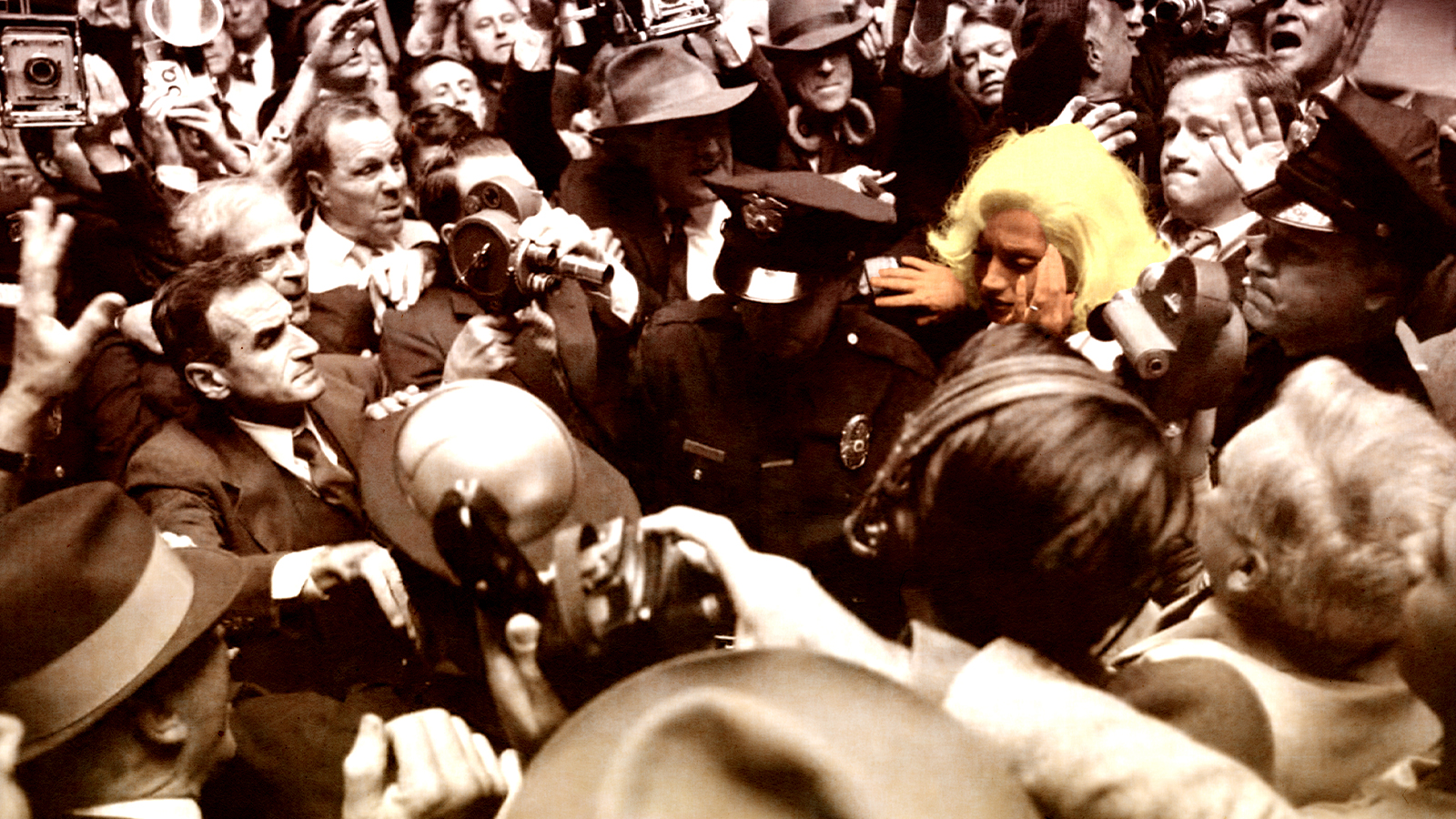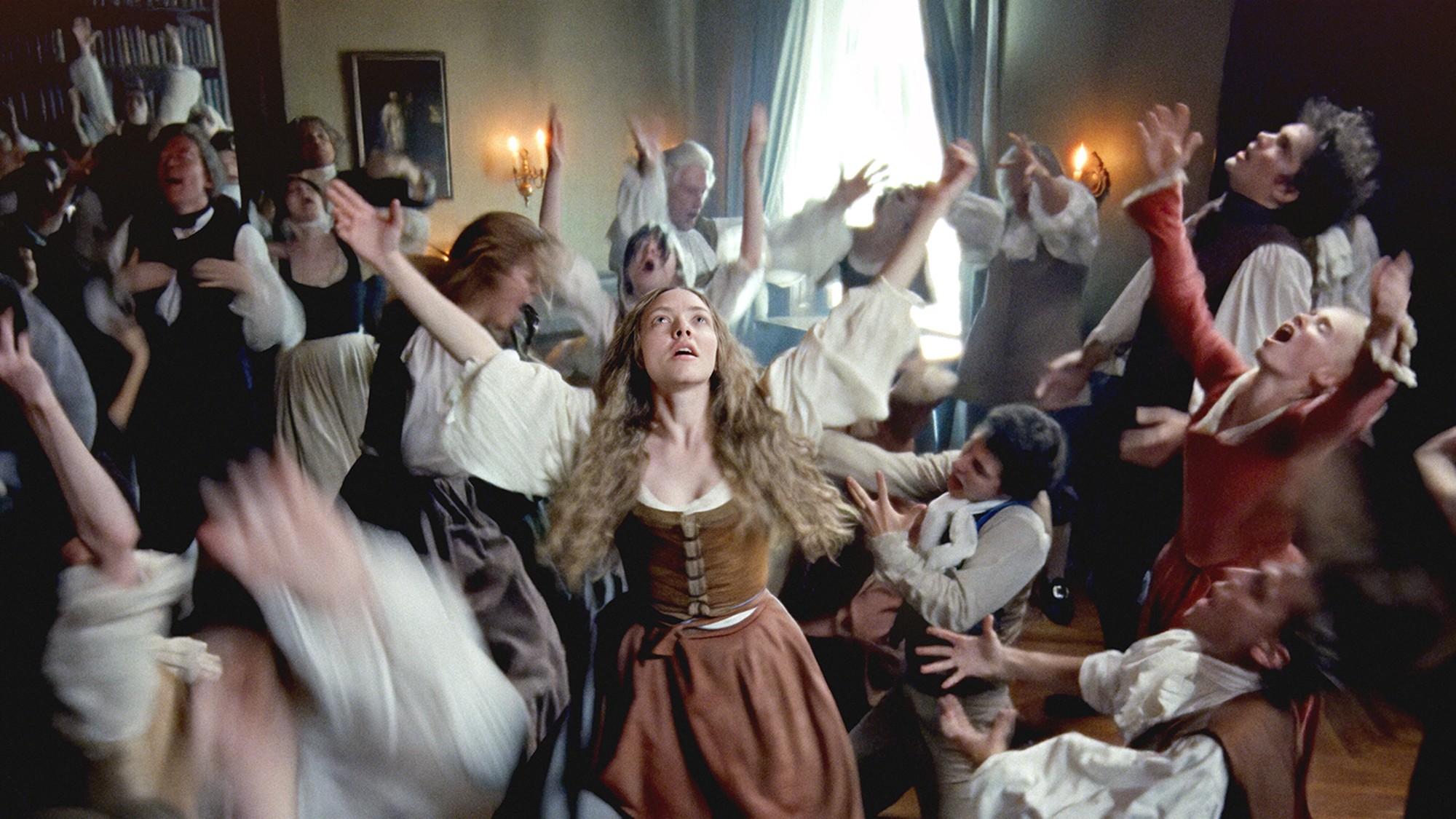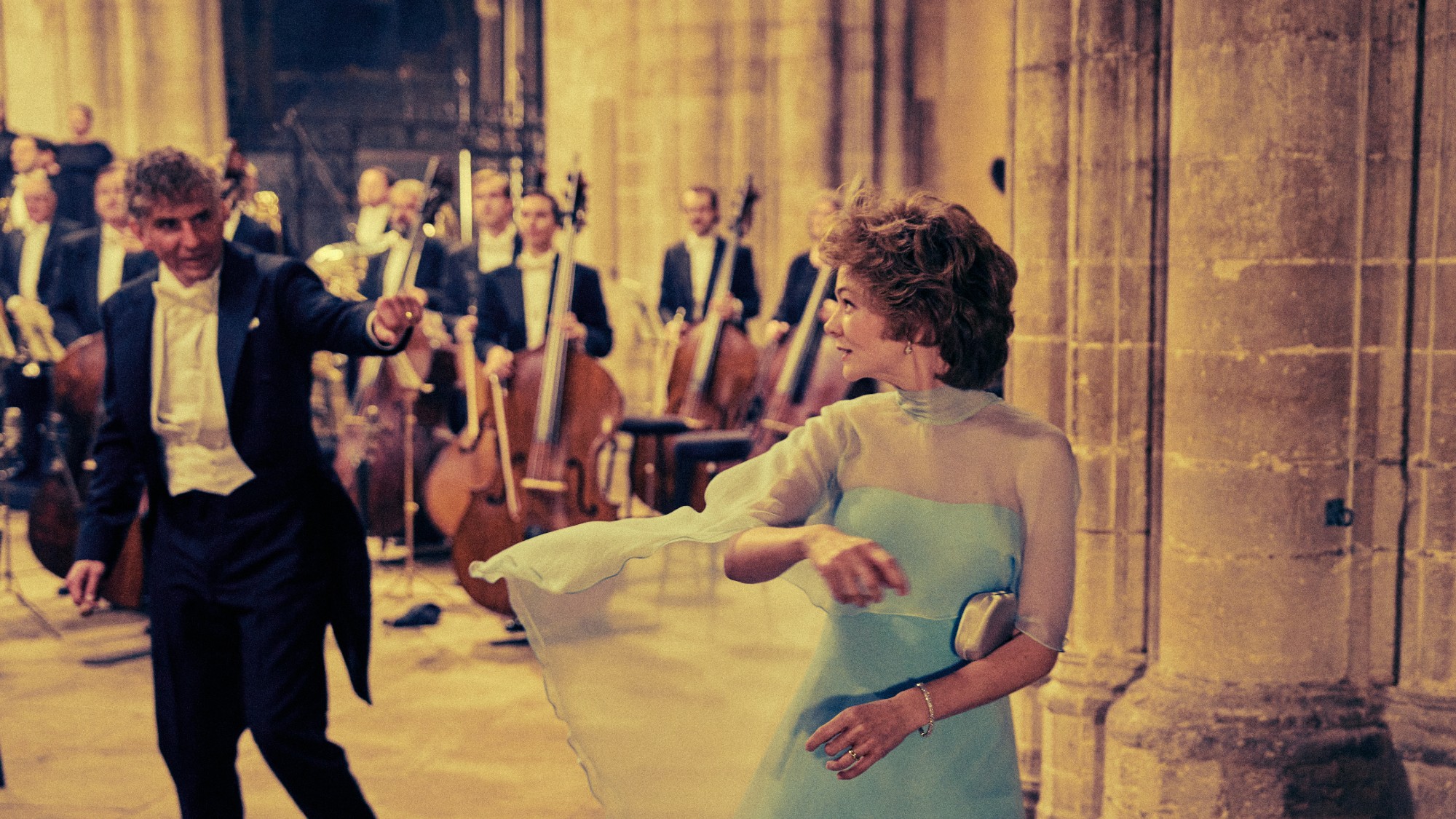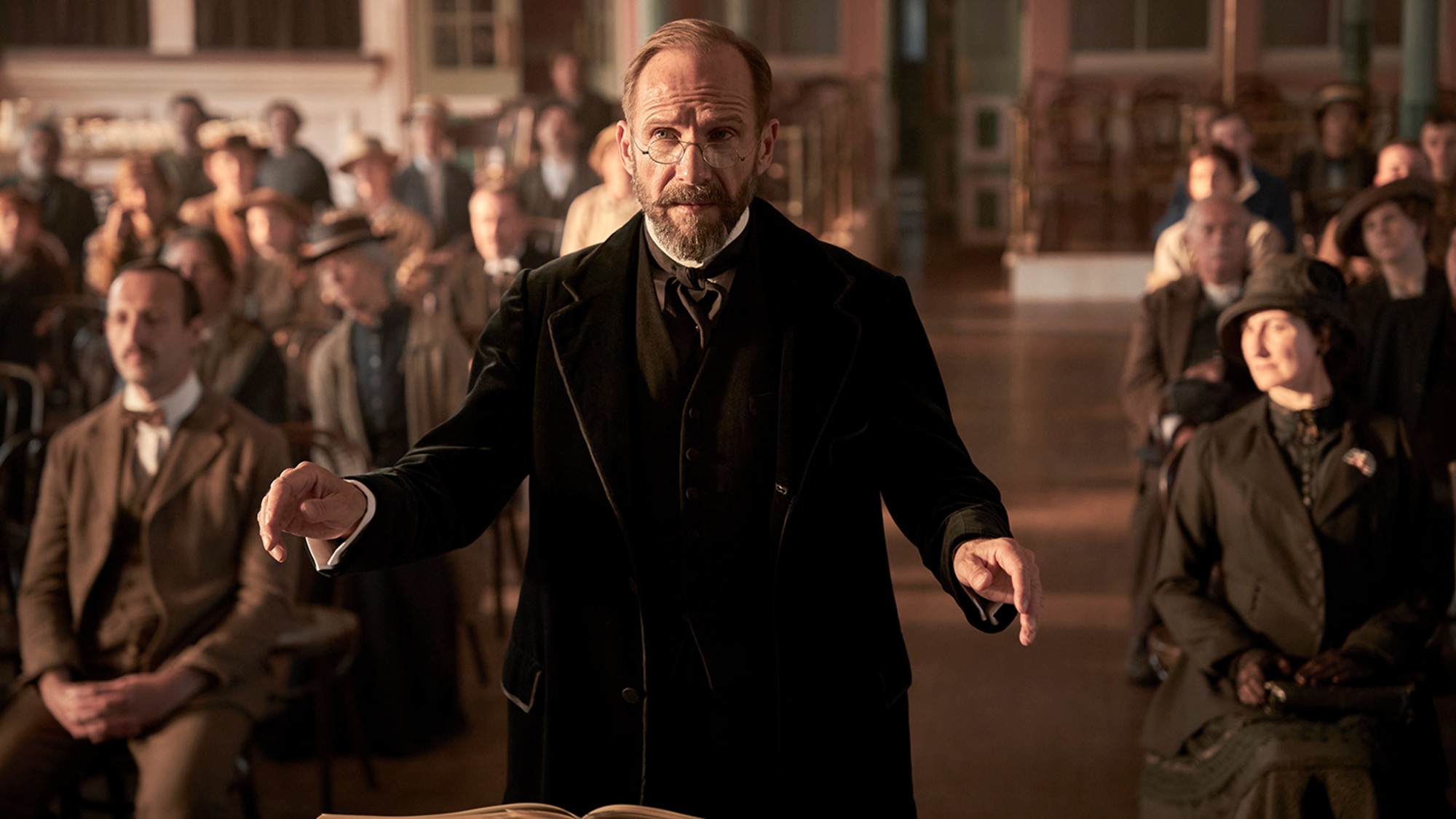The controversy over Netflix's Marilyn Monroe movie Blonde, explained
It may be 2022's most divisive film, and that's saying something


A free daily email with the biggest news stories of the day – and the best features from TheWeek.com
You are now subscribed
Your newsletter sign-up was successful
Netflix's new Marilyn Monroe movie Blonde has arrived, and it may be 2022's most controversial film. Here's everything to know about the movie and why it's dividing critics:
How much of 'Blonde' is true?
Ana de Armas stars as Marilyn Monroe in Andrew Dominik's Blonde, but the movie is far from a traditional biopic. It's based not on a biography, but on a novel by Joyce Carol Oates. Netflix described the film as taking "dramatic license with her life," featuring real historical figures but also "amalgams of people she might have known."
For example, Blonde imagines Monroe to have been in a throuple with the sons of Charlie Chaplin and Edward G. Robinson, one of whom is implied to have contributed to her apparent suicide. Several graphic sex scenes between the three are featured, but there is no evidence a throuple actually happened as depicted in the movie. Most controversially, the climax of the film involves President John F. Kennedy sexually assaulting Monroe, who is then kidnapped and forced to have an abortion in a sequence that, again, is totally imagined.
The Week
Escape your echo chamber. Get the facts behind the news, plus analysis from multiple perspectives.

Sign up for The Week's Free Newsletters
From our morning news briefing to a weekly Good News Newsletter, get the best of The Week delivered directly to your inbox.
From our morning news briefing to a weekly Good News Newsletter, get the best of The Week delivered directly to your inbox.
But Blonde isn't completely fictional, as it also draws on true aspects of Monroe's life, including the fact that she married Joe DiMaggio and Arthur Miller (listed in the credits as "Ex-Athlete" and "The Playwright," respectively); that her father wasn't present; and that her mother suffered from schizophrenia, though another scene invented for the film shows her mother attempting to kill Marilyn in a bathtub when there is no evidence this event occurred.
What is so controversial about 'Blonde'?
Note: This section contains descriptions of graphic sexual violence depicted in the film.
Blonde is a relentlessly bleak and punishing film focused almost entirely on showing the suffering inflicted on Monroe over its two-and-half-hour runtime. It's rated NC-17 for its graphic sexual content and has sparked criticism by those who find it exploitative and disrespectful to the actress' legacy.
For one, an early sequence sees Monroe enter an audition with a man implied to be 20th Century Fox studio executive Darryl F. Zanuck, who forces her to get on the floor, pulls down her dress, and rapes her while she cries. (This is another scene the movie invented.)
A free daily email with the biggest news stories of the day – and the best features from TheWeek.com
Later, Secret Service agents drag Monroe to President John F. Kennedy after she has taken pills and become disoriented. Kennedy forces her to perform oral sex on him while he's lying in bed on the phone, aggressively pushing her head toward his crotch. A close-up of Monroe giving Kennedy oral sex lasts more than a minute as he calls her a "dirty slut," and a visibly distressed Monroe thinks to herself, "You have to swallow. You have to swallow." The film zooms out to show this oral sex scene being watched in a movie theater.
Afterward, Kennedy grabs Monroe and throws her onto the bed, placing his hand over her mouth as she screams. The scene cuts to her waking up in bed and puking as Secret Service agents drag her away, implying she was raped by Kennedy. She is subsequently kidnapped in the middle of the night and forced to have an abortion. Monroe wakes up covered in blood the following morning and overdoses not long after. (The film doesn't specifically identify the president as being Kennedy and lists him as "The President" in the credits, but it's clearly meant to be him.)
Many other scenes show Monroe topless, including one in which her husband, implied to be Joe DiMaggio, beats her after discovering explicit photos of her; he physically abuses her again minutes later, calling her a "f--king whore." Monroe is depicted as being severely emotionally damaged by the absence of her father in her life, so she calls DiMaggio and other men "daddy" repeatedly in many scenes.
There are also multiple consensual sex scenes with Charles Chaplin Jr. and Edward G. Robinson Jr. An explicit one early on shows them having a threesome, and they have a sexual encounter in public in a movie theater, with Monroe loudly moaning as the trailer for one of her films plays.
Outside of the sexual content, the movie includes multiple graphic depictions of miscarriages and abortions, and two different abortion scenes are shot from inside Monroe's vagina. The first one sees Monroe change her mind about the abortion at the last minute, but she is forced to have it, while in the second scene, she receives an abortion unwillingly while she's barely conscious. She also has a miscarriage after tripping and falling.
In multiple scenes, the movie also depicts Monroe's fetus, which she imagines speaking to her in a baby's voice. "You won't hurt me this time, will you?" the CGI fetus asks her, referring to her abortion earlier in the film. She tells the fetus that "you're not the same baby," but it responds, "That was me. It's always me." These scenes have led some critics to argue the film is pro-life.
"Blonde is a horrific, tone-deaf reminder of why a female perspective should be included, or at least asked for, when writing about abortion," IndieWire's Samantha Bergeson argued.
What have critics said about the film?
The movie has sharply divided critics, some of whom have praised it as powerful and argued that the uncomfortable viewing experience is the whole point, while others have panned it as one-note and outright cruel.
At The New Yorker, Richard Brody described Blonde's "relentless torments" as "directorial sadism," panning it for its "cheap sentiment, brazen tastelessness, and sexual exploitation." Similarly, the Chicago Sun-Times' Richard Roeper called the movie "borderline sadistic" and an "acidic, exploitative, vulgar nightmare," and at NPR, Justin Chang wrote it "dwells on [Monroe's] pain so obsessively" that its "empathy feels like another form of exploitation."
Some have argued the movie does a disservice to Monroe by skipping over many aspects of her life that would show her as having more agency and painted a fuller picture of her as a person in favor of focusing only on her suffering. The fact that she founded a production company is not mentioned, for instance.
But other critics have come away from Blonde impressed, with Vulture's Bilge Ebiri writing that the film is "beautiful, mesmerizing, and, at times, deeply moving," while The Associated Press' Jocelyn Noveck called it "bruising and often beautiful."
What has the director said?
Dominik has addressed the criticism in interviews, some of which have only sparked further criticism.
Speaking to The Associated Press' Lindsey Bahr, Dominik argued the film isn't exploitative. "Suffering is not exploitative, because it's not titillating," he said. In an interview with The Wrap, he addressed claims that the film is pro-life, saying that while some critics are looking at it "through this Roe v. Wade lens," it's "not really about that." Speaking to Deadline, Dominik also argued Monroe "clearly wasn't in control of her life," like the movie portrays, arguing, "Any person that's killing themselves is not a figure of female empowerment."
In an interview with Sight and Sound, journalist Christina Newland questioned the fact that Blonde ignores how Monroe "formed her own production company, or that she was involved in opposing the anti-communist witch-hunts by the House Un-American Activities Committee in the 1950s," and other aspects of her life. In response, Dominik said the film is not about that but "about a person who is going to be killing themself," so his interest was to "examine the reasons why they did that," calling Monroe an "extraordinarily self-destructive" person.
Newland shared a cut portion of this interview on Twitter, in which Dominik also argued "nobody really watches" Monroe's movies and was surprised to learn Newland watches 1953's Gentlemen Prefer Blondes regularly. "What is it about it?" Dominik asked, before controversially describing the classic film as being about "well-dressed whores." He also suggested Monroe's performance of "Diamonds Are a Girl's Best Friend" in that movie is an example of "romanticized whoredom."
The quotes attracted further criticism of Dominik ahead of Blonde's release, with critic Kayleigh Donaldson tweeting that he seemed "openly contemptuous towards the woman he made an entire film about," while critic Dana Stevens suggested Dominik views Monroe as "a glorified whore who is interesting only for her suffering."
De Armas has also drawn some criticism for comments she's made promoting the movie, including when she said she felt the presence of Monroe on set and claimed the late actress was "approving of what we were doing."
Does the film have any Oscar buzz?
De Armas was once seen as a strong candidate to be nominated for Best Actress, and some pundits still think this is possible, as even the film's detractors have praised her performance. But the fact that the movie itself is so polarizing and upsetting has made that less likely.
Ultimately, it will come down to whether the Academy agrees with Blonde's critics that in trying to condemn the exploitation of Marilyn Monroe, Dominik has only exploited her again.
Brendan worked as a culture writer at The Week from 2018 to 2023, covering the entertainment industry, including film reviews, television recaps, awards season, the box office, major movie franchises and Hollywood gossip. He has written about film and television for outlets including Bloody Disgusting, Showbiz Cheat Sheet, Heavy and The Celebrity Cafe.
-
 El Paso airspace closure tied to FAA-Pentagon standoff
El Paso airspace closure tied to FAA-Pentagon standoffSpeed Read The closure in the Texas border city stemmed from disagreements between the Federal Aviation Administration and Pentagon officials over drone-related tests
-
 Political cartoons for February 12
Political cartoons for February 12Cartoons Thursday's political cartoons include a Pam Bondi performance, Ghislaine Maxwell on tour, and ICE detention facilities
-
 Arcadia: Tom Stoppard’s ‘masterpiece’ makes a ‘triumphant’ return
Arcadia: Tom Stoppard’s ‘masterpiece’ makes a ‘triumphant’ returnThe Week Recommends Carrie Cracknell’s revival at the Old Vic ‘grips like a thriller’
-
 Heated Rivalry, Bridgerton and why sex still sells on TV
Heated Rivalry, Bridgerton and why sex still sells on TVTalking Point Gen Z – often stereotyped as prudish and puritanical – are attracted to authenticity
-
 Film reviews: ‘Send Help’ and ‘Private Life’
Film reviews: ‘Send Help’ and ‘Private Life’Feature An office doormat is stranded alone with her awful boss and a frazzled therapist turns amateur murder investigator
-
 February’s new movies include rehab facilities, 1990s Iraq and maybe an apocalypse
February’s new movies include rehab facilities, 1990s Iraq and maybe an apocalypsethe week recommends Time travelers, multiverse hoppers and an Iraqi parable highlight this month’s offerings during the depths of winter
-
 The 8 best animated family movies of all time
The 8 best animated family movies of all timethe week recomends The best kids’ movies can make anything from the apocalypse to alien invasions seem like good, wholesome fun
-
 Film reviews: ‘The Testament of Ann Lee,’ ’28 Years Later: The Bone Temple,’ and ‘Young Mothers’
Film reviews: ‘The Testament of Ann Lee,’ ’28 Years Later: The Bone Temple,’ and ‘Young Mothers’Feature A full-immersion portrait of the Shakers’ founder, a zombie virus brings out the best and worst in the human survivors, and pregnancy tests the resolve of four Belgian teenagers
-
 The 8 best biopic movies of the 21st century (so far)
The 8 best biopic movies of the 21st century (so far)the week recommends Not all true stories are feel good tales, but the best biopics offer insight into broader social and political trends
-
 Film review: ‘The Choral’
Film review: ‘The Choral’Feature Ralph Fiennes plays a demanding aesthete
-
 Golden Globes affirm ‘One Battle,’ boost ‘Hamnet’
Golden Globes affirm ‘One Battle,’ boost ‘Hamnet’Speed Read Comedian Nikki Glaser hosted the ceremony
